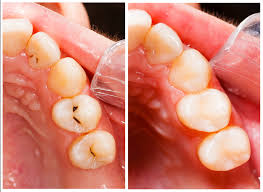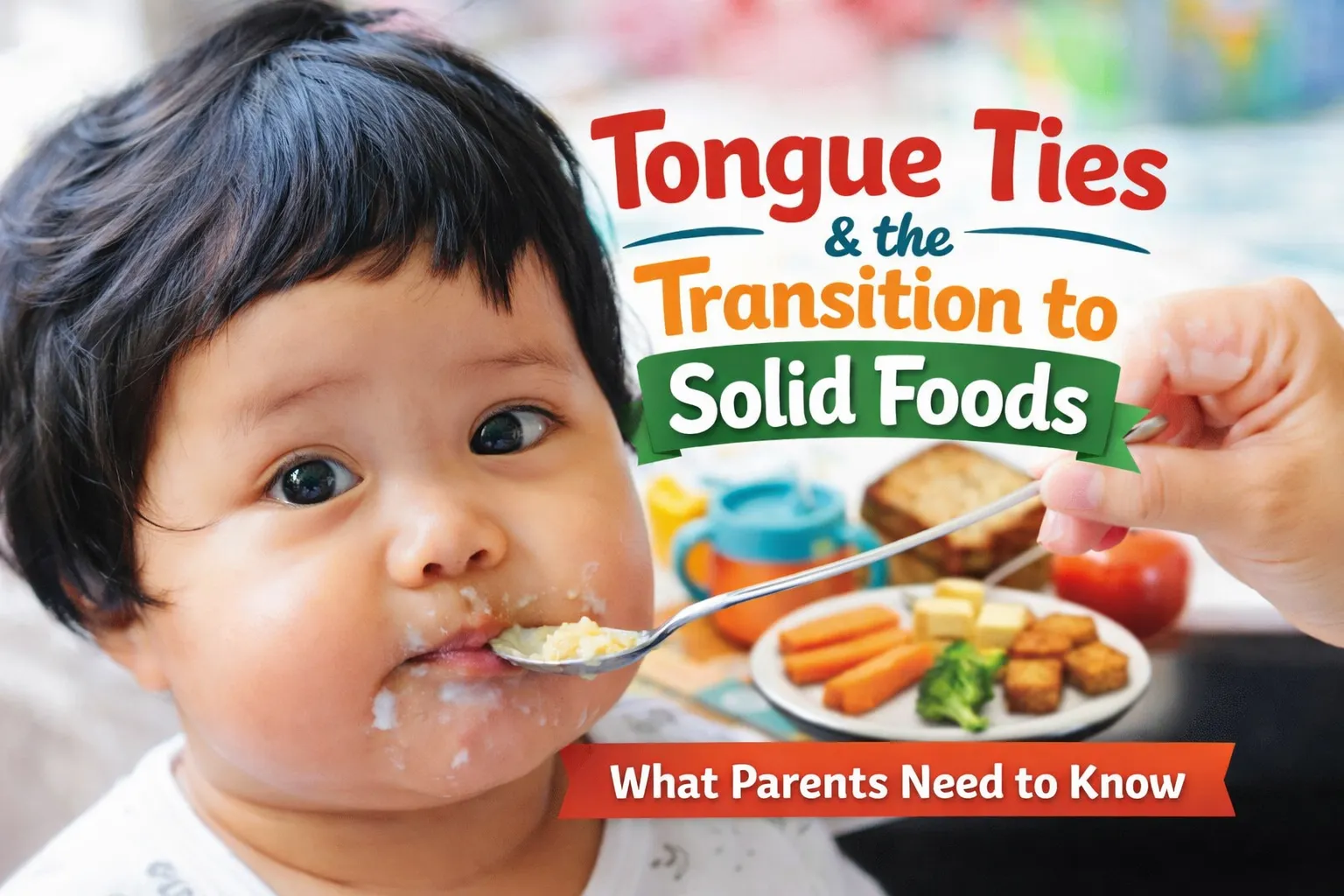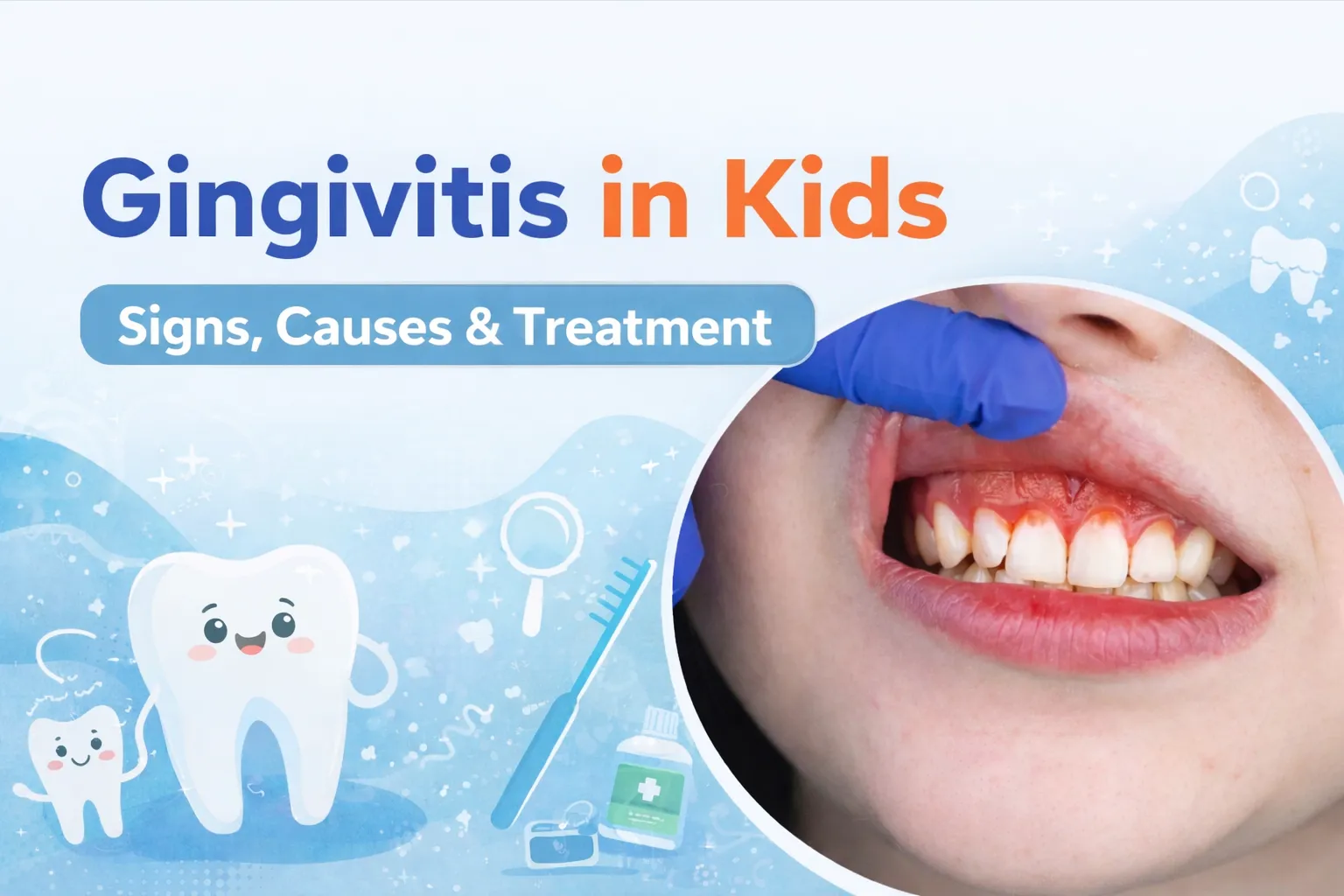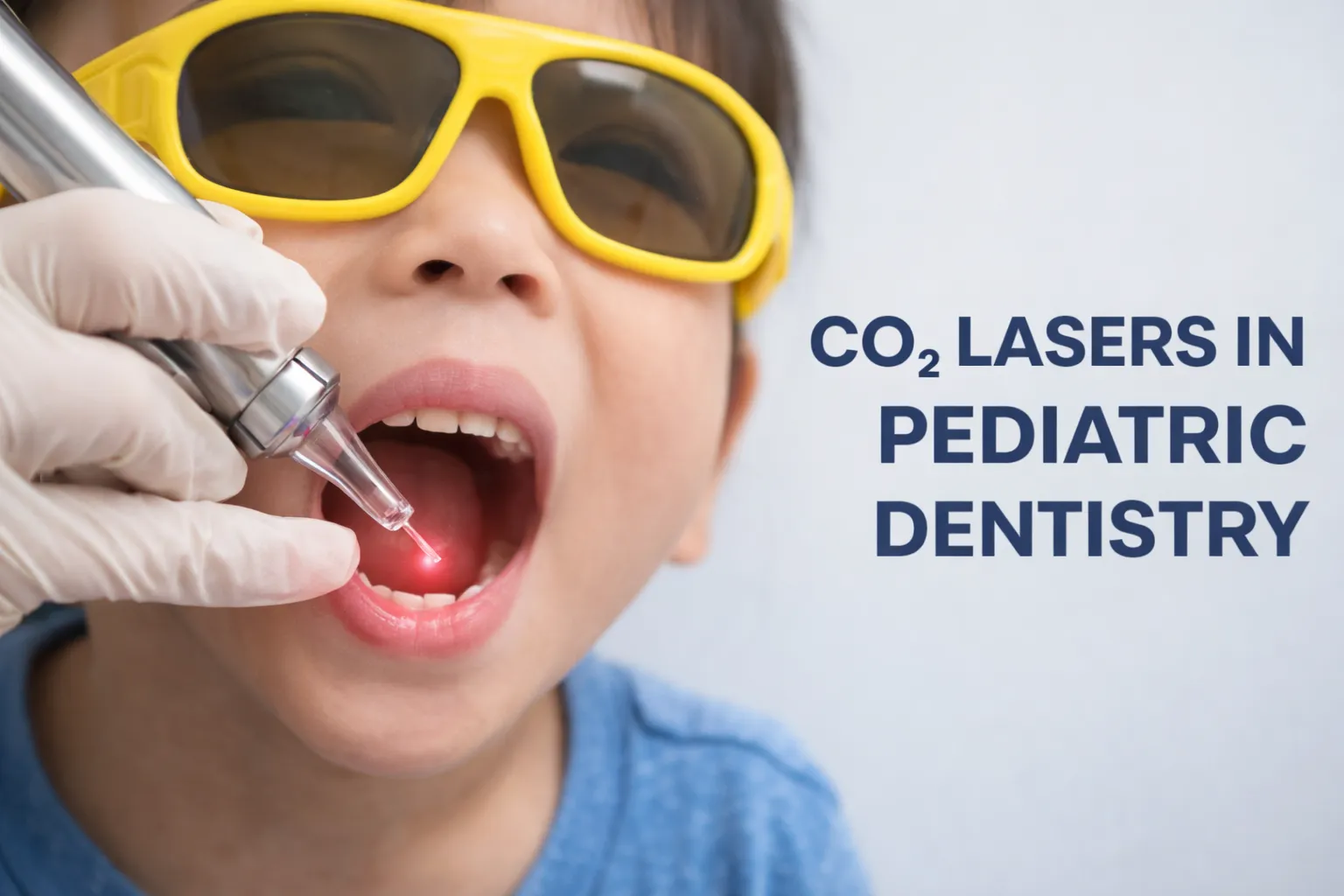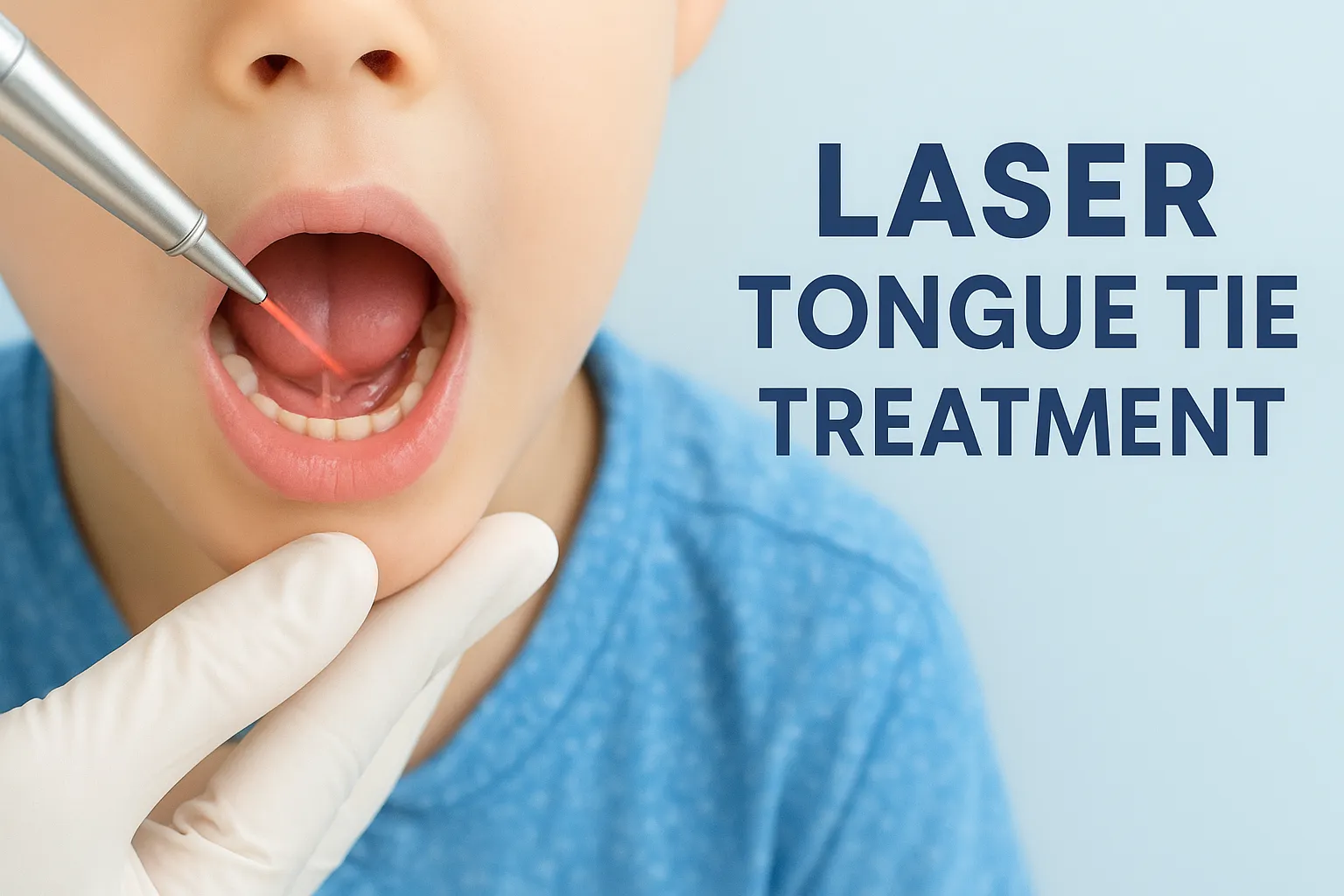If you think your child is too young to go to a dentist and make a visit, you are wrong : your kid’s teeth are at risk long before he/she tastes her 1st piece of candy.
INTRODUCTION:
Parents often assume that kids get cavities because they are lacking brushing and flossing. That’s true to an extent, but what few people know is that tooth decay is a disease known as “dental caries” . its caused by specific germs, spreads easily within families and can last a lifetime. Dental caries is more common among young children than any other chronic illness, including asthma and diabetes. In fact, 42% of children aged 2 to 11 have dental caries affecting primary teeth as per studies.
WHAT CAUSES CAVITIES IN TODDLERS AND CHILDREN???
Tooth decay begins with a group of germs called mutans streptococcus. “ the bacteria fed on sugar and produce acid that eats away at the structure of the teeth by depleting calcium”. The bacteria also create plaque a yellowish film that builds up on teeth and contains even more enamel eroding acid. Once an area without calcium becomes big enough, the surface of tooth collapses and that’s a cavity.
SDF Cavity Treatment in Shivaji Nagar Pune At Vanilla Smiles
1. Oral bacterial colonization
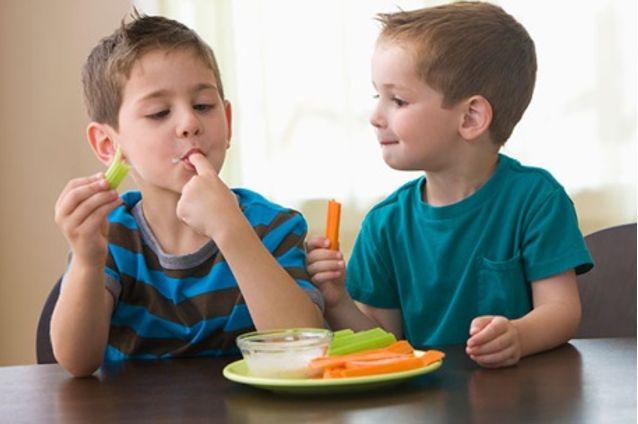
Cavity causing bacteria can be transmitted to children through saliva. For e.g: sharing eating utensils, common toys etc. Read More
2. Dietary habits
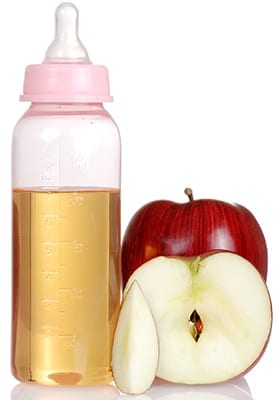
Given that cavity causing bacteria love sugar, it is not surprising that frequent consumption of sugary drinks and snacks increase children’s risk of developing cavities.
A pediatric dentist near you can guide you best about your child’s diet and identity potential problem area.
- Sweets are not the only problematic foods, but also processed, starchy foods like chips, snacks etc can cause harm.
- Its not just about the total amount of sugar consumed but the frequency with which the child consumes such foods and amount of times those foods spend in the child’s mouth. (chocolate eating video)
- Babies should not be put to bed with bottles, especially bottles containing sugary liquids. It tends to pool up around the child’s upper front teeth leading to rapid destruction of those teeth.
3.Dental enamel defects
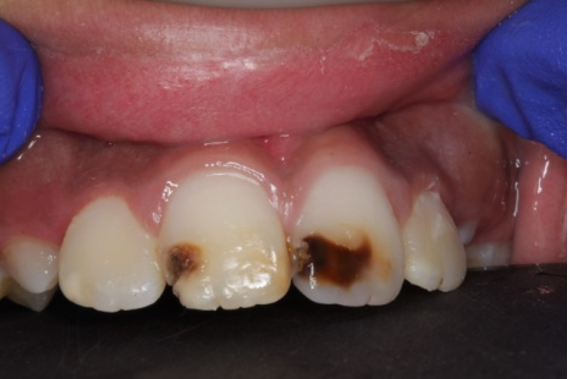
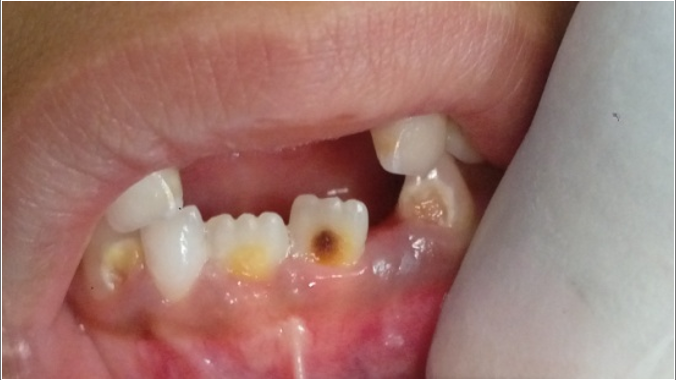
Dental enamel defects such as enamel hypolplasia, may increase child’s risk of developing tooth decay. these defects can be hereditary or they might be a result of environmental factors like decrease birth weight, viral and bacterial infections,hypoxia at /after birth, dental trauma etc. (MIH link)
4. Oral hygiene habits
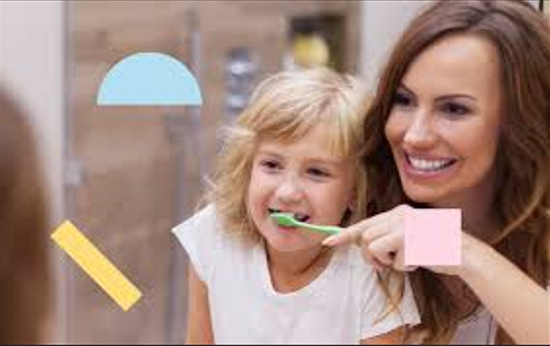
It is important to start brushing your baby’s teeth twice a day as soon as your baby’s very 1st tooth emerges and incorporate flossing as soon as 2 teeth start establishing contact.
Using a flouridated toothpaste is a must.
5. Mouth breathing
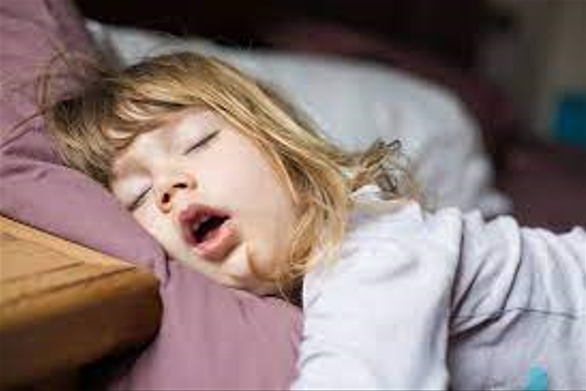
Saliva is a natural protector of teeth. It helps wash away food particles and repair damage. Children who breathe through their mouths instead of their nose typically have reduced salivary flow and dry mouth, making it unsurprisingly that they are at increase risk for developing cavities. If mouth breathing is an issue for your child a pediatric dentist may be able to help correct the condition using interceptive orthodontic appliances.
TIPS FOR HOW TO PREVENT CAVITIES IN CHILDREN AND BABIES
- Schedule a check up with pediatric dentist near you as soon as your baby’s 1st tooth emerges, and no later than his/her 1st birthday.
- Establishing a dental home early in your child’s life and continuing to bring your child to dentist regularly for professional cleanings which is a easy and effective way to prevent caries.
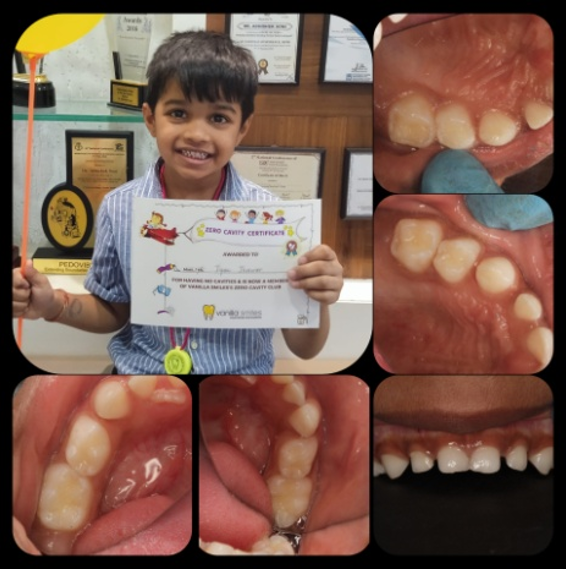
PREVENTION AND TREATMENT OF CAVITIES FOR KIDS
- Cleaning, fluoride sessions, regular follow ups.
- Pulp therapy wherever indicated.
- Establishing a dental home… catch them early catch them young.
- Restorations and preventive filling
Frequently Asked Questions (FAQs)
1. Why do children get cavities even after brushing?
Children can still get cavities if bacteria, sugar intake, or improper brushing techniques are present. Kids often miss cleaning back teeth properly, allowing plaque to build up. A pediatric dentist in Shivaji Nagar, Pune can guide you on correct brushing habits.
2. Can cavities in toddlers be caused by sharing spoons or bottles?
Yes. Cavity-causing bacteria spread through saliva. Sharing utensils, bottles, or pacifiers can pass harmful bacteria from parents or siblings to young children.
3. What foods cause cavities in children the most?
Sugary snacks, juices, chocolates, and sticky foods like chips increase cavity risk. The frequency of eating these foods matters more than the quantity. A pediatric dentist near Shivaji Nagar can help with a diet plan for your child.
4. Is milk at night harmful for baby teeth?
Yes. Putting a baby to sleep with a milk bottle can cause “baby bottle cavities” because milk pools around the upper front teeth. This is a common reason children develop early tooth decay.
5. What are enamel defects and can they cause cavities?
Some children are born with weak or thin enamel due to genetic or medical conditions. This condition makes teeth more prone to decay. Early dental checkups at a children’s dental clinic in Pune help detect enamel issues.
6. Can mouth breathing cause cavities in kids?
Yes. Mouth breathing causes reduced saliva, dry mouth, and faster bacterial growth. Pediatric dentists can correct this with interceptive orthodontic appliances.
7. When should a child visit the dentist for the first time?
Your child should visit the dentist when the first tooth appears or by their first birthday. Vanilla Smiles Dental Clinic in Shivaji Nagar, Pune encourages early visits to prevent cavity formation.
8. How can I prevent cavities in my child naturally?
Regular brushing with fluoridated toothpaste, limiting sugary foods, avoiding night-time feeding with bottles, and scheduling routine dental checkups are the best natural preventive methods.
9. What treatments are available for cavities in kids?
Treatments include fluoride sessions, preventive fillings, SDF treatment, pulp therapy (baby root canal), and restorations. The right treatment depends on the severity of decay.
10. Are baby teeth really important if they fall out anyway?
Yes. Baby teeth help in chewing, speech development, facial growth, and guiding permanent teeth into correct positions. Untreated cavities can cause pain, infection, and affect the adult teeth too.
For more information kindly visit our website: https://www.vanillasmiles.dental/
Find clinic here: Get direction
Address: Soni Capital, 2nd Floor, Near Shreyas Hotel, 1237, Apte Road, Shivaji Nagar, Pune, Maharashtra 411004 India
